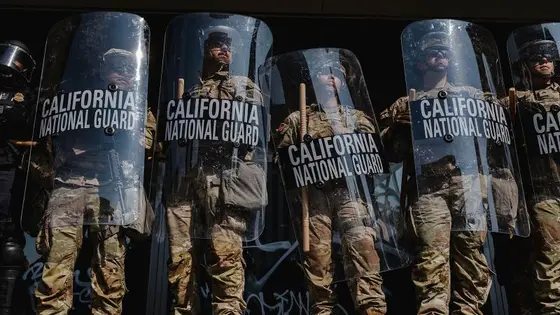T4K3.news
Trump National Guard case heads to California court
A California court will hear the challenge to Trump's use of the National Guard during immigration raids, testing constitutional limits and state sovereignty.
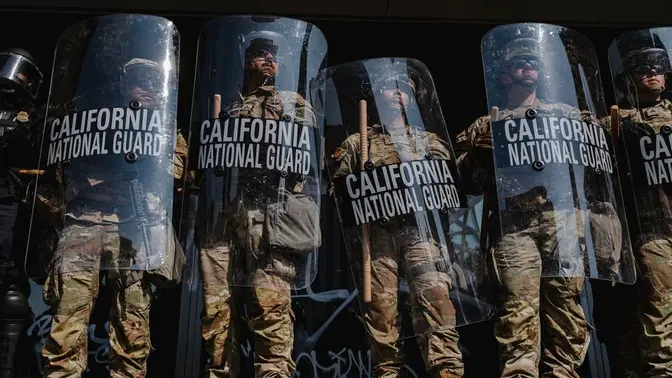
A California court will hear a high-stakes challenge to President Trump's use of the National Guard during immigration raids, focusing on constitutional limits and state sovereignty.
Trump National Guard case heads to California court
The case moves to a San Francisco federal court for a bench trial before Judge Charles R. Breyer. It asks whether Trump violated the Posse Comitatus Act, the 10th Amendment, or the Administrative Procedure Act by federalizing the California National Guard to respond to immigration raids in Los Angeles despite objections from Governor Newsom. Lawyers for Trump say the troops were limited to protecting federal property and personnel and did not perform police duties.
Newsom's lawyers argue the move overruled state officials and undermined California sovereignty, while Trump's side cites Section 12406(3) to authorize federalization when federal forces cannot enforce the laws, insisting orders were issued with appropriate scope. The hearing will feature witness testimony from Maj. Gen. Scott M. Sherman and William Harrington to clarify the deployment and the guard's activities, along with an Immigration and Customs Enforcement representative.
Key Takeaways
"unprecedented power grab"
Newsom's lawyers describe the action as an unprecedented power grab that overruns state authority
"the military from engaging in civil law enforcement unless explicitly authorized by law"
Newsom's complaint cites the Posse Comitatus Act as limiting military policing
"they overstep the bounds of law"
Newsom's lawyers accuse Trump and Hegseth of overstepping legal limits
"the act does not provide a mechanism for private civil lawsuits"
Trump's lawyers argue there are no private enforcement avenues under the act
The trial tests a long-standing question at the heart of American democracy: who controls the use of the military at home. A ruling could recalibrate the balance between federal power and state sovereignty and set a standard for how presidents may deploy military resources in domestic affairs.
Beyond the legal questions, the case mirrors a political clash between a Republican president and a Democratic governor. The outcome may influence public trust in government actions during crises and shape how courts constrain executive power in future disputes involving national security and immigration enforcement.
Highlights
- Power should be bound by law not headlines
- The guard is not a tool for politics
- Courts decide what powers exist
- Constitutional balance is at stake
Political and legal risk in a high profile power dispute
The case pits federal authority against state sovereignty and could trigger political backlash or controversy. The outcome may influence public trust in government power and executive action.
The courtroom will decide how far presidential power can reach into domestic affairs.
Enjoyed this? Let your friends know!
Related News

California redistricting plan advances after court ruling
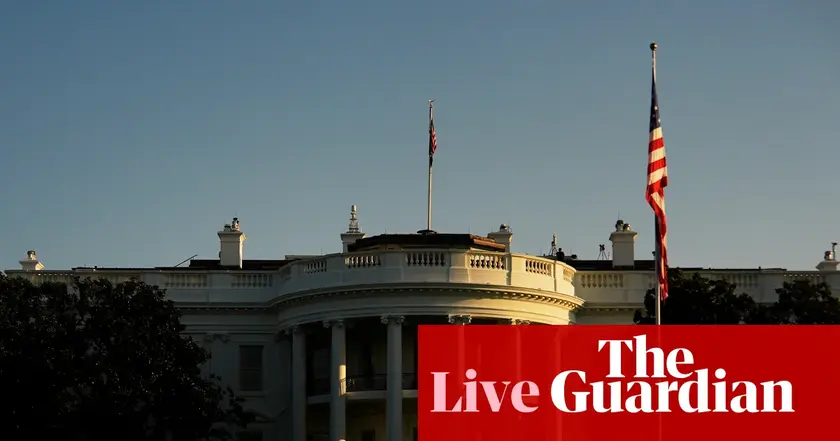
DC police takeover faces federal lawsuit
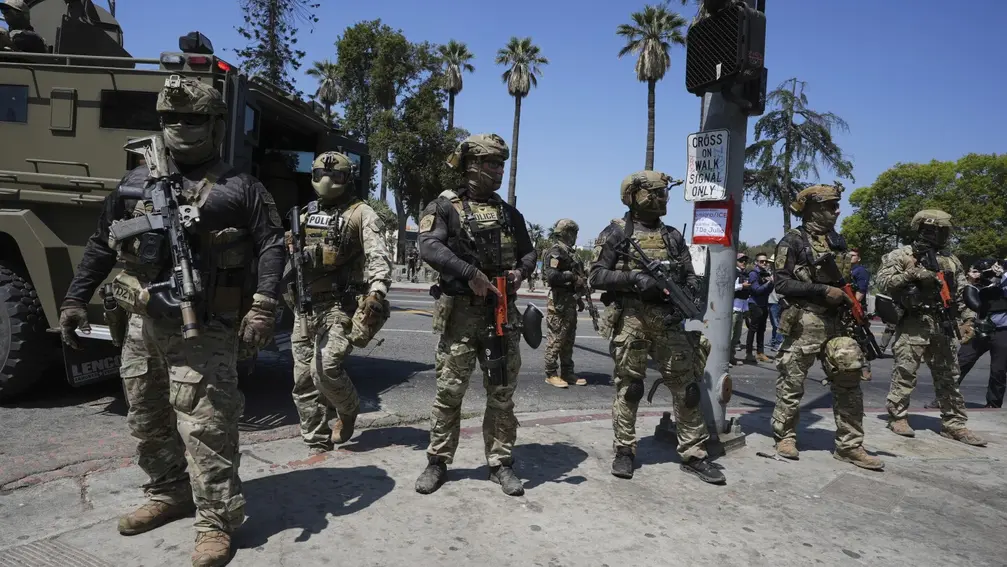
Posse Comitatus Debate Reaches Court
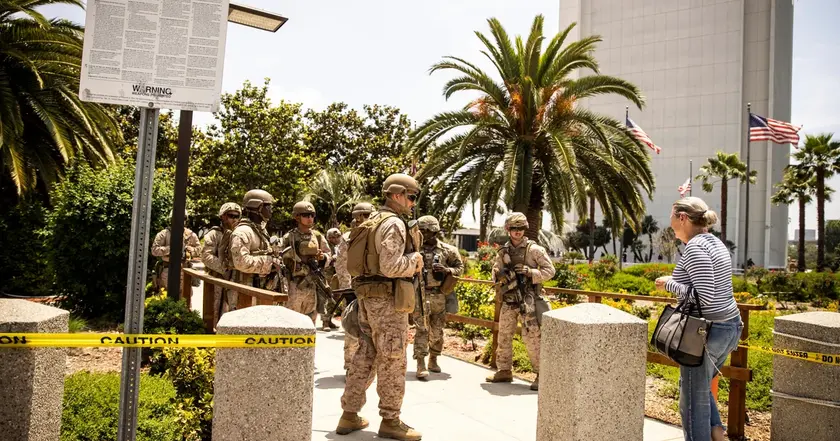
Judge weighs limits on presidential authority in National Guard deployment
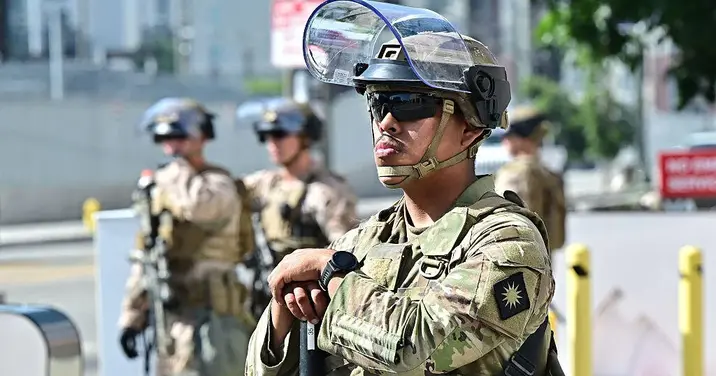
LA deployment tests limits of federal military authority
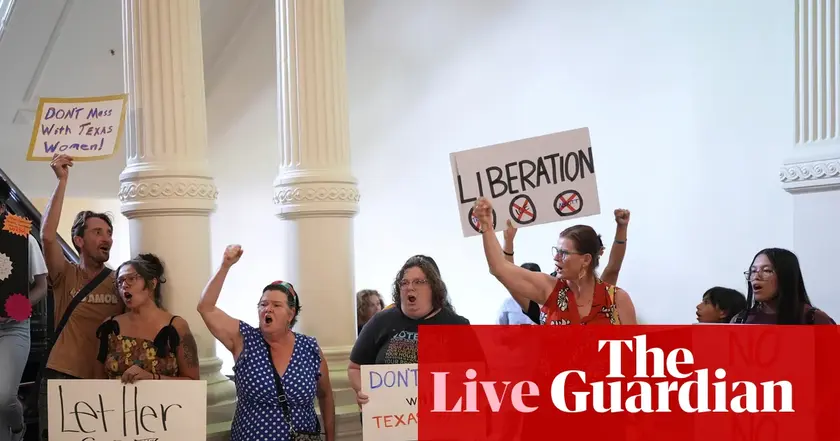
Texas GOP Advances Redistricting Map

Trump fires Fed governor triggering legal clash
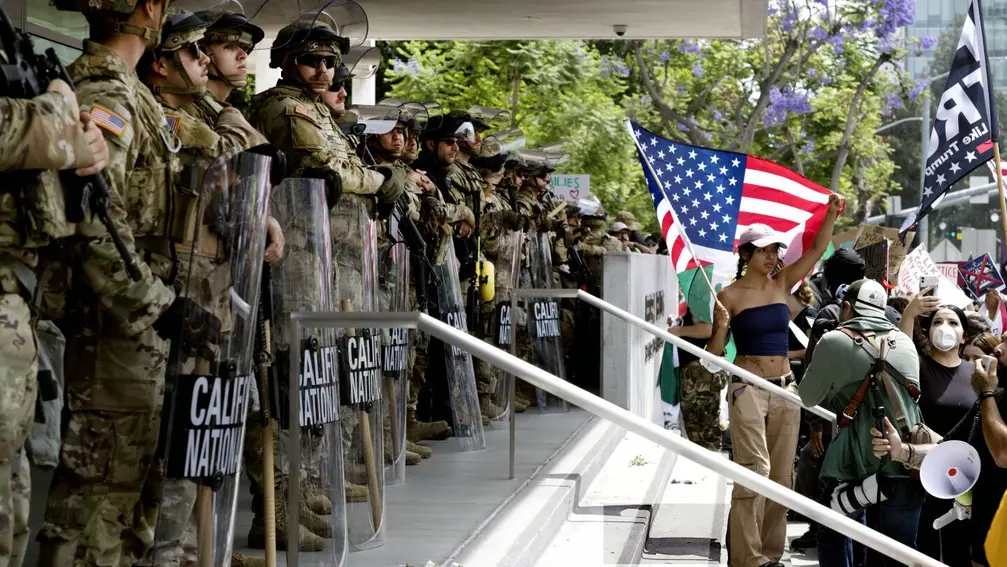
Ruling on military involvement in immigration enforcement
